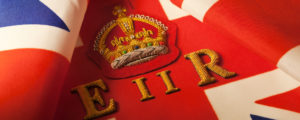Queen Elizabeth: A Mighty Legacy


The world lost an icon last month with the passing of Queen Elizabeth II, whose 70 year reign left a lasting legacy not only on the U.K., but on the entire world. As we reflect on the Queen’s mighty legacy, we are reminded of the importance of financial planning to wholly care for those we love after we pass. In honor of the Queen, let’s review a few considerations for preparing your own legacy.
The Documents That Establish Your Legacy – Trusts, Wills, and Beneficiary Designations
Trusts
Unlike the royal family’s estate, our legacy, if left just in a will (or if there is no plan at all), is subject to probate, which is a court process that is accessible to the public and can be lengthy and expensive. By establishing a trust, you not only are protecting your assets, but you are also protecting your privacy.
So, what can be held in trust? Non-retirement investment accounts can be titled in the name of the trust to ensure the proper transfer of assets at death. Other things that can be titled in trust are checking and savings accounts, real estate, life insurance, and valuable personal property.
A good example of valuable personal property that Queen Elizabeth holds in trust is her personal extensive jewelry collection. While the specifics of Queen Elizabeth’s estate plan aren’t public knowledge, it is tradition that the “pecking order” of these pieces would be first made available to Camilla, the Queen Consort, and then to Kate Middleton. An interesting thing to note is that the crown jewels are also held in trust, but by the nation, not the monarchs, as they are property of the nation. These priceless pieces are passed in trust from monarch to monarch and have been protected at the Tower of London since the 1600s.
Wills
For individuals and families with simpler estates, a will can be an effective, and cheaper, way of outlining your wishes for who inherits your assets. Everything from who should receive the home and cars, to which collectibles and jewelry go to each heir can be outlined in your will.
A large part of organizing your legacy is ensuring that plans are made for any individual that requires your ongoing care. Your wishes for guardianship can be outlined in your will. While Queen Elizabeth didn’t have any minor children, she needed to set up guardianship for her beloved corgis, Muick and Sandy. Prince Andrew, the Duke of York, who originally gifted the Queen the dogs is reported to be taking care of the dogs now.
If you have furry friends in your family that you’d like to plan for, you can identify who you’d like to care for them at your passing in your will. In addition, you can bequest a specified amount of money to the future owner with the request that it’s used for the ongoing care of the animal. Learn more about estate planning for animal lovers here!
Beneficiary Designations
There are many ways for you to ensure your investments and cash accounts are passed in the way you wish. If you don’t have a trust, a simple way to direct bank accounts and non-retirement investment accounts to your loved ones is to add a “payable on death” or “transfer on death” designation to these accounts. You can use other titling for these accounts if they are joint ownership, like joint tenants with rights of survivorship or community property. By doing this, you are essentially adding a beneficiary to the account, similar to what is done with retirement accounts like IRAs and 401(k)s.
Speaking of retirement accounts, it is important to have primary and contingent beneficiaries listed on your accounts, and to review those on a regular basis to ensure your beneficiary designations align with your desires.
Lessons Learned – Document Your Wishes & Review Regularly
Whether it is a trust or a will, it is important to have documentation in place to achieve your desired goals, and to verify that assets, such as your house, are titled correctly.
Outlining your wishes and planning in detail for your funeral and burial can relieve stress and conflict from those you love. Whether it is a simple ceremony of life or an extravagant party, putting it in writing and planning for the expense (either by pre-paying it or including instructions in your estate plan for those final expenses) can allow for a memorial that aligns with your last wishes.
Estate planning is for everyone, not just royalty. If you haven’t started legacy planning, now is a great time to start brainstorming not only the people you want to plan for, but also the individuals or entities who will help execute your wishes. And, if you already have a plan in place, it’s always a good idea to review it periodically to ensure that your plan aligns with your current wishes. Having a plan in place is one of the best gifts you can give to your loved ones at your passing.
